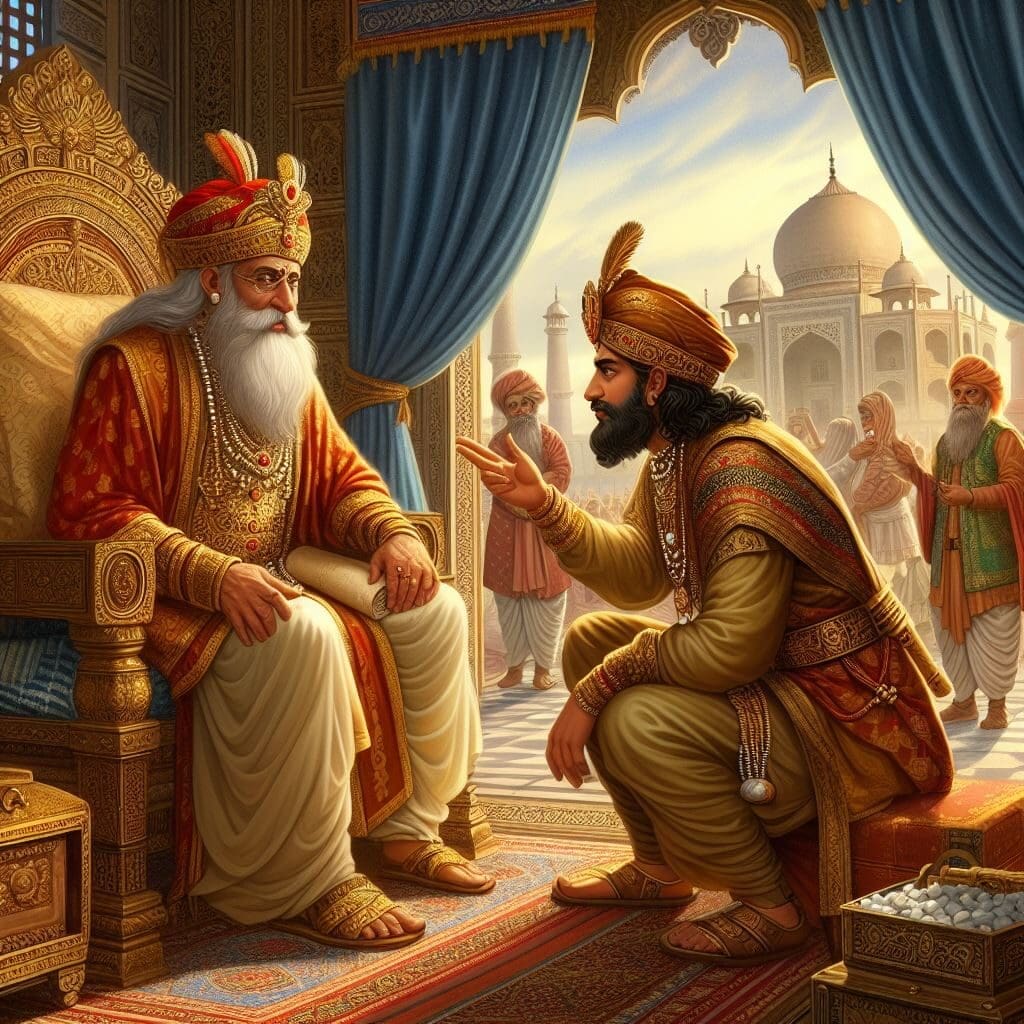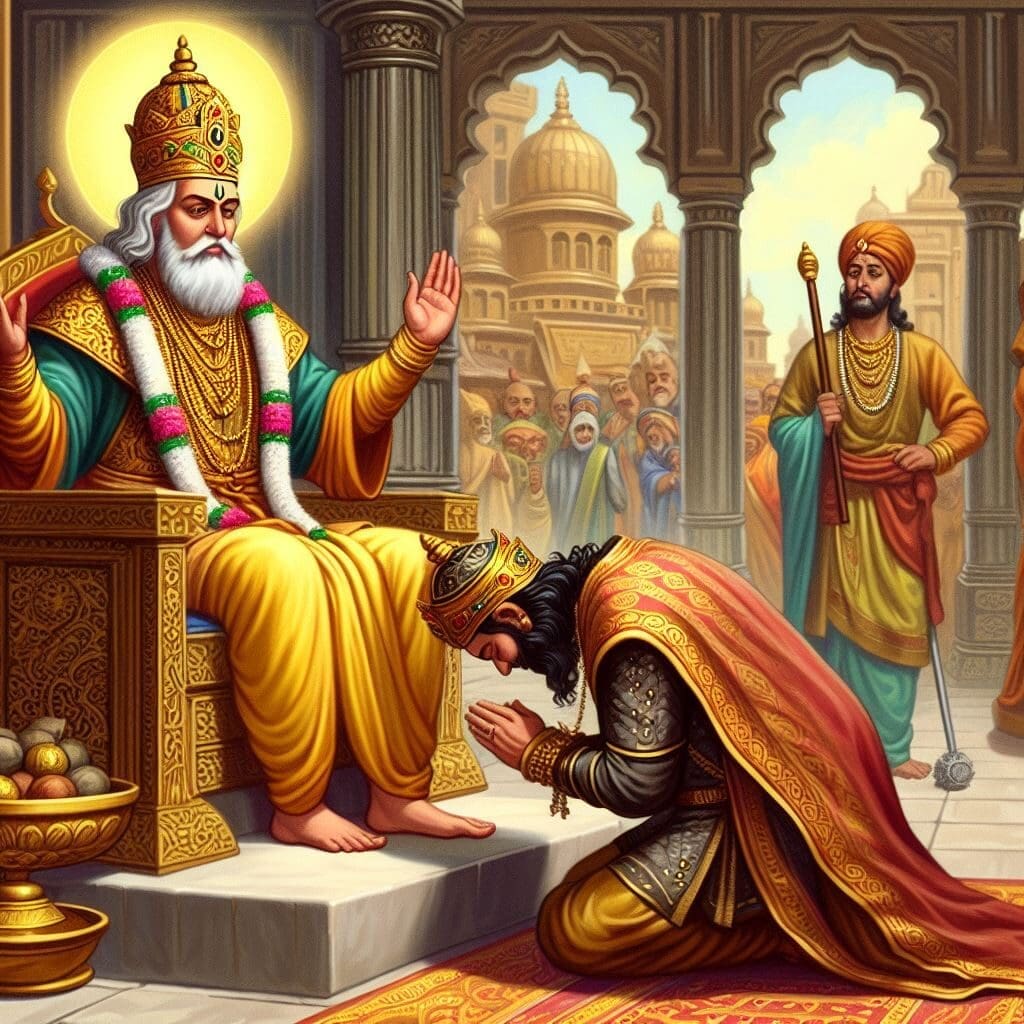I hope all of you enjoyed the previous podcast and story on Karma Rule 2 – Life doesn’t happen by itself; we should make it happen.
Here is the podcast for this story:
Ever grateful to Mrs. Sudha Natarajan, Chennai for the podcast audio and Mr. Selvam, Aaduthurai for the tamil translations!
Once upon a time, there was an emperor, named Rajaveeran, who ruled a mighty kingdom.
“The Emperor’s Lack of Insight”
He consistently believed in his correctness and demanded unquestioning obedience from his citizens. His conceit ran so deep that he disregarded the perspectives of others entirely.
The citizens were deeply saddened and concerned by their emperor’s behaviour. They perceived his attitude as arrogant, believing he considered himself the ultimate authority in matters of justice. They felt he saw himself as above morality, resulting in his recurrent wrongdoing. Consequently, the entire kingdom suffered the repercussions of his actions.
Beyond a point, the citizens could not take it any longer and started revolting against the emperor. The emperor couldn’t comprehend this. He felt he was only doing that which was good for the entire empire and wondered why everyone was revolting against him. He sought advice from a wise saint in his kingdom.

Emperor Rajaveeran understands the laws of karma:
Emperor Rajaveeran asked the wise saint the cause of his citizens’ discontent and revolt against him, perplexed by their dissatisfaction despite his benevolent deeds toward all.
The saint listened attentively and then remarked, “Your Majesty, you must first acknowledge and accept your mistakes.” He went ahead sharing his wisdom on the laws of karma.
“One cannot escape God’s law of karma, by finding fault with others for their misdeeds, but exempting oneself from the same.”
said the wise saint
The saint proceeded to elucidate the principles of karma to the emperor, emphasizing the importance of introspection and acknowledging personal mistakes. “You must begin by impartially examining your own actions,” the saint advised, courageously listing some of the emperor’s transgressions. He asserted that by holding himself to the same standards as his citizens and demonstrating ethical leadership, positive change would naturally ensue.

The king was inspired by the saint’s words and prostrated at his feet seeking forgiveness. After paying heed to the saint’s advice, the emperor spent time introspecting himself and realized his own bias and misdeeds. He realized his mistake and begged for forgiveness from the saint.
Over time, the kingdom became a better place under King Rajaveeran’s leadership. Poverty decreased, and everyone lived happily. The story of King Rajaveeran and the saint became famous, showing how accepting the truth and taking responsibility can make a big difference
A moment to reflect
Many of us fall into this trap, imposing rules on others that we ourselves don’t adhere to. Some may even exhibit such conceit that they fail to acknowledge their own errors. Once we recognize our own mistakes, however, we can begin to avoid them and gain greater control over our lives.
Thank you, Hope you enjoyed this brief exploration of the karma theory! Looking forward to your support and feedback and stay tuned for more captivating stories coming your way soon..
2 responses to “Karma Rule 3: One must accept something in order to change it.”
-

Very nice pronounciation from
Mrs.SUDHA NATARAJAN
A big shout to entire team.
Keep rocking.-

Thanks for your feedback madam, do continue to support our team 🙏
-


Leave a Reply